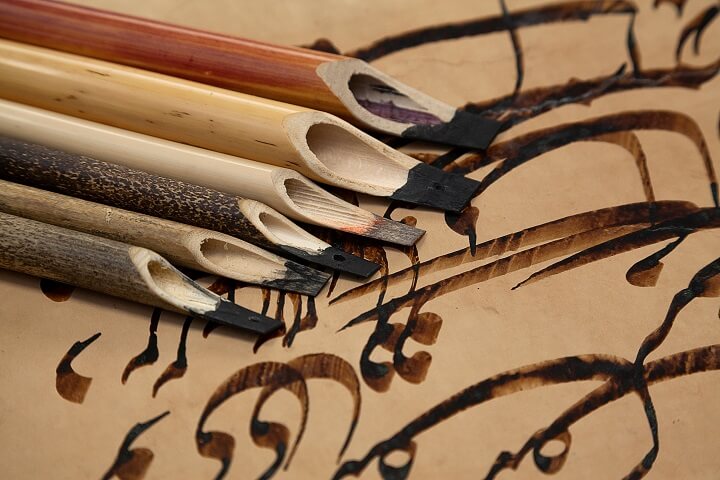Starting your journey into Arabic can feel like standing at the foot of a linguistic mountain. With its unique script, complex grammar, and the challenge of choosing a dialect, it’s easy to feel overwhelmed. However, with the right Arabic language learning tips and a consistent approach, fluency is an entirely achievable goal.
This comprehensive guide is built specifically for non-native speakers in the US, UK, Canada, and Australia, providing the most effective strategies to streamline your Arabic learning process and unlock one of the world’s richest languages.
Foundational Arabic Language Learning Tips: Starting Right
A strong foundation is the only way to ensure your Arabic learning is sustainable and effective. Start here before diving into conversations or complex texts.
Script Mastery: Go Beyond the ABCs
Simply memorizing the 28 letters isn’t enough. Your first major tip is mastering the visual and phonetic nuances of the script:
- The Four Forms: Learn how each letter connects and changes its shape based on its position (initial, medial, final, or isolated).
- The “Heavy” Letters: Pay special attention to the sounds that don’t exist in English (e.g., the difference between the light “t” ت and the heavy/emphatic “ṭ” ط). Correct pronunciation of these sounds is key to comprehension.
- Vocalization (Harakat): Begin by reading fully vocalized texts (with ḥarakāt – short vowels). Gradually transition to unvocalized text as your vocabulary grows and you rely on context.
The Dialect Dilemma: Choose Your Path Wisely
One of the most frequent questions in Arabic learning is whether to study Modern Standard Arabic (MSA) or a dialect. The best answer is: study both, but start with MSA.
| Language Form | Primary Use | Why It’s Essential |
|---|---|---|
| MSA (Fushā – فصحى) | Writing, formal speech, news, education. | It is the lingua franca and the grammatical structure that binds all dialects. |
| Dialect (e.g., Levantine, Egyptian) | Daily conversation, film, social media. | You cannot achieve conversational fluency without choosing and practicing a dialect. |
Practical Tip: Master the MSA basics, then immediately choose a dialect (like Levantine or Egyptian) that interests you for conversational practice.
Practical Arabic Learning Strategies for Consistency
Once you have the basics down, consistency is the key to accelerating your progress. These are the most valuable Arabic language learning tips for daily practice:
Leverage the Root System (الجِذْر): The Arabic Secret Weapon
Arabic vocabulary is built around a system where most words are derived from a three-letter root (الجِذْر – al-jithr). This is the biggest hack in all of Arabic learning:
- If you know the root ك-ت-ب (K-T-B), you know that:
- كِتَاب (kitāb) means book.
- مَكْتَب (maktab) means office or desk.
- كَاتِب (kātib) means writer.
- Strategy: When you learn a new word, always identify and memorize its three-letter root. This allows you to infer the meaning of dozens of related words instantly.
Embrace Immersion and Media Exposure
The more you expose yourself to Arabic outside the classroom, the faster you will learn:
- Listen Actively: Watch Arabic TV shows, news programs, or YouTube videos (with subtitles in the language you are studying, either MSA or a dialect). This trains your ear to the rhythm and speed of native speech.
- Change Your Devices: Switch your phone, social media, and computer settings to Arabic. This forces you to engage with the language passively throughout the day.
- Flashcards and SRS: Use a Spaced Repetition System (SRS) app to drill vocabulary. Focus on high-frequency words first to maximize your reading and listening comprehension gains.
Find a Speaking Partner
You must speak to learn. Look for native tutors or language exchange partners to practice your chosen dialect. Don’t be afraid to make mistakes—they are essential for learning.
Overcoming Common Mistakes in Arabic Learning
- Translating Literally: Arabic grammar and idioms differ widely from English. Literal translation will lead to awkward, incorrect phrases. (Example: Don’t translate “I feel cold” as أنا أشعر بارد, but use أشعر بالبرد).
- Neglecting Morphology: Ignoring the root system means you treat every word as a separate entity, making vocabulary retention far more difficult.
- Stopping at Vocabulary: Many learners stop after memorizing a list of nouns and verbs. To advance, you must master the particles (such as prepositions and conjunctions) as they fundamentally alter verb meaning and sentence flow.
- Avoiding Speaking: Many learners feel they aren’t “ready.” Start speaking immediately, even with simple sentences, to solidify your learning.
Conclusion
Your decision to take on Arabic learning is a bold one, and with these targeted Arabic language learning tips, you are set for success. By committing to both the formal structure of MSA and the conversational flow of a dialect, and by harnessing the power of the root system, you will find that the language starts to unlock itself.
Ready to accelerate your Arabic learning and put these tips into practice? Download the Kaleela Arabic language learning app today and begin your path to fluency!



